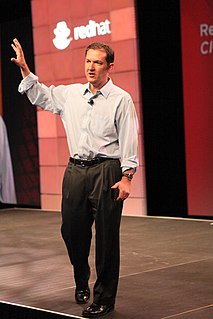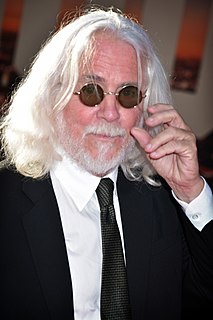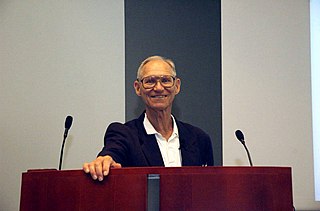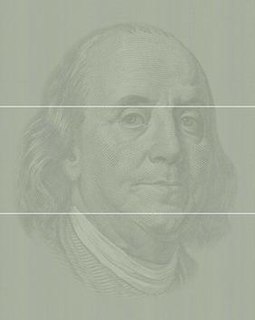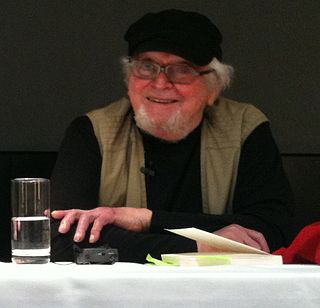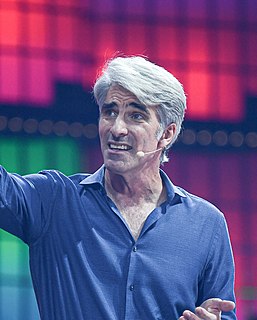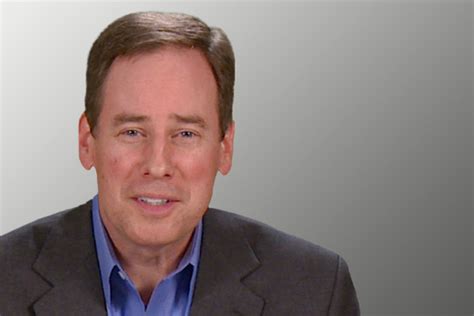Top 1200 Open Source Software Quotes & Sayings - Page 4
Explore popular Open Source Software quotes.
Last updated on December 22, 2024.
Sometimes the routes leading to feelings of anger are so convoluted and circuitous that it takes enormous skill to discern their original source, or fountainhead. But regardless of the reason for or the source of the anger or the relative ease or complexity in perceiving either the anger or its source - everybody, but everybody, gets angry.
Oracle is my second job ever that did not involve waitressing. But I still have my waitress apron just in case this does not work out. It's just that I fell in love with software when I was programming in college. When I was an investment banker, there were mostly mainframe companies and very few software ones.
...One of the most important lessons, perhaps, is the fact that SOFTWARE IS HARD. From now on I shall have significantly greater respect for every successful software tool that I encounter. During the past decade I was surprised to learn that the writing of programs for TeX and Metafont proved to be much more difficult than all the other things I had done (like proving theorems or writing books). The creation of good software demand a significiantly higher standard of accuracy than those other things do, and it requires a longer attention span than other intellectual tasks.
Proprietary software keeps users divided and helpless. Divided because each user is forbidden to redistribute it to others, and helpless because the users can't change it since they don't have the source code. They can't study what it really does. So the proprietary program is a system of unjust power.
One of the big changes at the heart of Web 2.0 is the shift from the creation of software artifacts, which is what the PC revolution was about, to the creation of software services. These are services that ultimately, if they are successful, will require competencies of operation, of scale, and the like.
The information contained in an English sentence or computer software does not derive from the chemistry of the ink or the physics of magnetism, but from a source extrinsic to physics and chemistry altogether. Indeed, in both cases, the message transcends the properties of the medium. The information in DNA also transcends the properties of its material medium.
So, you have to contemplate yourself surrounded by the conditions you wish to produce and know you can attract divine energy to help you. Dormant forces come alive when you put your attention on what you intend to manifest and when you stay connected to your source of well-being, your source of kindness, and your source that excludes no one.
Microsoft Research has a thing called the Sense Cam that, as you walk around, it's taking photos all the time. And the software will filter and find the ones that are interesting without having to think, 'Let's get out the camera and get that shot.' You just have that, and software helps you pick what you want.
Testing by itself does not improve software quality. Test results are an indicator of quality, but in and of themselves, they don't improve it. Trying to improve software quality by increasing the amount of testing is like trying to lose weight by weighing yourself more often. What you eat before you step onto the scale determines how much you will weigh, and the software development techniques you use determine how many errors testing will find. If you want to lose weight, don't buy a new scale; change your diet. If you want to improve your software, don't test more; develop better.
Look at the great athletes, musician, artists, and writers. They all tap into a source. Some call that source God or soul or spirit or consciousness. The Seven Faces of Intention: creativity, kindness, love, beauty, expansion, abundance, and receptivity. And all seven are expressions of what I imagine that source to look like. The very fact that we exist is proof to me that the nature of that source is creative at its core. And there isn't a person reading this who does not have a gnawing sense inside that there's something they're here to do, something creative.
To ask about the 'source' of rights or morals assumes an erreous conclusion. To ask about the source of morals is to assume that such a source exists. As if it existed outside of human constructed systems. The 'source' is the human ability to learn from experience and to entrench rights in our laws and in our consciousness. Our rights come from our long history of wrongs.
To treat programming scientifically, it must be possible to specify the required properties of programs precisely. Formality is certainly not an end in itself. The importance of formal specifications must ultimately rest in their utility -in whether or not they are used to improve the quality of software or to reduce the cost of producing and maintaining software.










